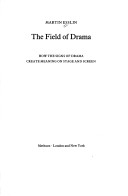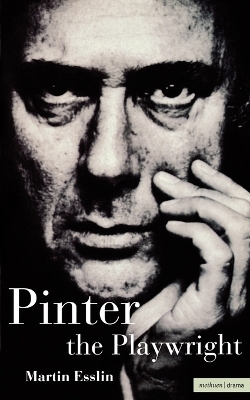Plays and Playwrights
4 total works
In 1953, Samuel Beckett's "Waiting for Godot" premiered at a tiny avant-garde theatre in Paris; within five years, it had been translated into more than twenty languages and seen by more than a million spectators. Its startling popularity marked the emergence of a new type of theatre whose proponents--Beckett, Ionesco, Genet, Pinter, and others--shattered dramatic conventions and paid scant attention to psychological realism, while highlighting their characters' inability to understand one another. In 1961, Martin Esslin gave a name to the phenomenon in his groundbreaking study of these playwrights who dramatized the absurdity at the core of the human condition. Over four decades after its initial publication, Esslin's landmark book has lost none of its freshness. The questions these dramatists raise about the struggle for meaning in a purposeless world are still as incisive and necessary today as they were when Beckett's tramps first waited beneath a dying tree on a lonely country road for a mysterious benefactor who would never show. Authoritative, engaging, and eminently readable, The Theatre of the Absurd is nothing short of a classic: vital reading for anyone with an interest in the theatre.
A unique book of criticism that brings both theatre and film studies within a single theoretical framework Martin Esslin is the author of seminal critical studies such as The Theatre of the Absurd and Brecht: A Choice of Evils. Covering artists as diverse as Duchamp and Brecht, Busby Berkely and Congreve, Pinter and WC Fields, Esslin's approach is fresh and genuinely inquisitive, examining various prepared positions and testing the jargon. Taking each element of drama - the actor, the setting, the text, the music - and making provocative cross-references to stage and screen, Esslin offers a carefully argued "system" of his own, much fuller and more sensitive than anything that has gone before.
"A brilliantly perceptive study of the most ambiguous and perpetually fascinating figure of the twentieth century European theatre" (Kenneth Tynan) Brecht's influence on the theatre may well be as powerful as Kafka's influence on the novel and this study of Brecht's life and work was unanimously well received when first published just after the writer's death in 1959. This book portrays the paradox of a man whose work was admired on the Western side of the Iron Curtain despite ideological differences whilst in the East his artistic output was criticised but his communist ideas were welcomed. This authoritative text has stood the test of time
In 1958 The Birthday Party was dismissed by all but a few critics and closed after one week's run in London. Since then Harold Pinter has come to be acknowledged as "our best living playwright" (Irving Wardle, The Times) Martin Esslin's study of Pinter's plays has become a standard work since its publication in 1970. This sixth, revised edition - published to mark Pinter's 70th birthday and updated to cover his most recent plays, Moonlight, Ashes to Ashes and Celebration - offers a comprehensive survey of the whole span of Harold Pinter's writing career by one of the most distinguished commentators on modern theatre."It will certainly not be the last book on Pinter, but seems bound to remain one of the best" John Russell Taylor"Holds its place as the most straightforwardly useful account of Pinter's work to date" Times Literary Supplement


